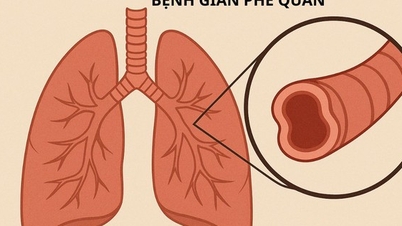Specialist Doctor 1 Bui Hoang Bich Uyen, Department of Nutrition, Xuyen A General Hospital, Ho Chi Minh City said that for many adults, napping can help maintain alertness or overcome daytime fatigue. Naps can be short (15 to 30 minutes) or longer; both short and long naps can help increase alertness and are useful. But if they last longer, they can cause consequences at night.
Sleep duration
Short naps (15-20 minutes): For most people, napping for less than an hour is best. If you can keep your nap to 15 or 20 minutes, all the better.
Recovery Nap (20-60 Minutes) : If you didn't get enough sleep the night before, a slightly longer nap can help you feel refreshed and ready to tackle the day. However, don't make it a habit.
Prolonged naps (over 60 minutes) : In rare cases, such as when you have been diagnosed with narcolepsy, napping may be necessary and even part of treatment. However, for most people, napping longer than 60 minutes can disrupt nighttime sleep.

A short nap during the day can also boost work performance. Illustration: AI
It is important to note that sleep becomes deeper the longer you sleep, reaching the deepest state (slow wave sleep) in about an hour, or if you are sleep deprived and fall into deep sleep quickly during a nap. Waking up from deep sleep can cause sluggishness and actually make the sleepiness worse.
In general, the best nap length for adults is around 20 minutes and no more than 30 minutes. A 20-minute nap allows the napper to get a little light sleep to increase alertness without falling into deep sleep.
The timing of your nap is just as important as the length of your nap. It’s best to nap earlier in the afternoon, around 2 or 3 p.m. Napping later in the afternoon can make it harder to fall asleep at night.
Benefits of a nap
A short nap during the day can also boost work performance (improved memory, logical thinking...). Physical performance can also improve after napping. An observational study found that napping once or twice a week was associated with a reduced risk of cardiovascular problems (heart attack, stroke, heart disease); reduced effects of sleep deprivation (reduced stress and supported the immune system in people who had not slept the night before).
Additionally, the benefits of regular napping have been linked to a reduced risk of artery rupture in people diagnosed with an aneurysm.
Some negative effects of napping
- Napping for more than 90 minutes is associated with high blood pressure in middle-aged and older women.
- Napping longer than 30 minutes is associated with a higher prevalence of non-alcoholic fatty liver disease in older adults.
- Napping for more than 60 minutes per day is associated with an increased risk of type 2 diabetes.
Source: https://thanhnien.vn/ngu-trua-bao-lau-la-tot-cho-nao-va-tim-mach-185251112233432929.htm




![[Photo] Unique architecture of the deepest metro station in France](https://vphoto.vietnam.vn/thumb/1200x675/vietnam/resource/IMAGE/2025/11/14/1763107592365_ga-sau-nhat-nuoc-phap-duy-1-6403-jpg.webp)
![[Photo] Unique art of painting Tuong masks](https://vphoto.vietnam.vn/thumb/1200x675/vietnam/resource/IMAGE/2025/11/14/1763094089301_ndo_br_1-jpg.webp)



























![[Photo] Special class in Tra Linh](https://vphoto.vietnam.vn/thumb/1200x675/vietnam/resource/IMAGE/2025/11/14/1763078485441_ndo_br_lop-hoc-7-jpg.webp)








































































Comment (0)